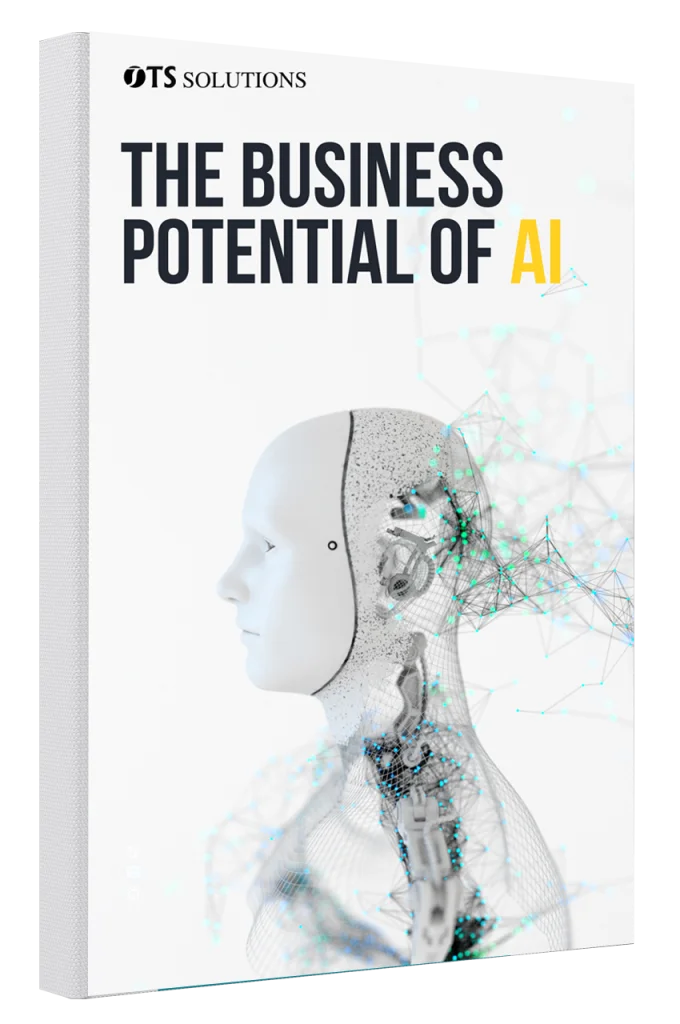How is Digital Technology Transforming the Accessibility of Mental Health Services and Therapy?
Introduction to Digital Technologies in Mental Health Therapy
Digital technologies have rapidly transformed mental health therapy practices. With the emergence of AI, ML, DevOps, AR VR cloud computing, the Internet of Things (IoT), data analytics, digital transformation, application modernization, and other digital technologies, IT practice in mental health therapy is undergoing significant changes. These technologies offer innovative ways to improve treatment delivery, enhance patient engagement, and personalize care plans.
In this article, we discuss the impact of digital mental health solutions in detail. We also check the future transformations of these technologies in this industry. This information can be crucial for you if you are a therapy practitioner looking for the best digital solutions for your clinic or hospital.
Projected Market Values by Year
| VR/AR | 2025 | $5 billion |
| DevOps | 2030 | $51.18 billion |
| AI and ML | 2032 | $22,384.27 million |
| IoT | 2028 | $293.10 billion |
| Cloud Computing | 2028 | $128.19 billion |
We cannot ignore the impact of technology on the mental therapy industry. When it comes to mental health therapy, digital technologies can revolutionize the way we approach treatment and support. Incorporating digital technologies in mental health therapy can provide numerous benefits, including increased accessibility, personalized treatment options, and improved patient engagement.
Overview of the Key Digital Technologies Used in Mental Health Therapy
Digital technologies have opened a whole new world of possibilities for mental health therapy. Cloud computing, IoT, data analytics, digital transformation, and application modernization are some of the impacts happening continuously to optimize the IT operations of this industry. These technologies can work together to enhance the effectiveness and efficiency of mental health therapy, improving the well-being of patients.
Leveraging DevOps for Efficient and Agile Mental Health Therapy
DevOps is the combined practice of software development (Dev) and IT operations (Ops). This methodology emphasizes continuous integration and delivery and allows therapists to rapidly iterate on their treatment strategies and adapt to changing patient needs. DevOps promotes seamless communication and ensures the effective deployment of technology-driven solutions by breaking down silos between developers, therapists, and IT professionals.
Considerations in DevOps Methodology
Mental health therapy is sensitive and requires strict adherence to patient confidentiality and privacy regulations. This can be challenging due to the diverse range of technologies and programming languages used in the field. There is a need for constant monitoring and iteration of mental health therapy solutions to ensure they are effective and deliver the desired outcomes. However, DevOps practices may require additional resources and expertise, which may be limited in the mental health domain.
Enhancing Therapeutic Experiences Through AR and VR Technologies
One of the most exciting advancements in mental health therapy is the integration of Augmented Reality (AR) and Virtual Reality (VR) technologies. These immersive experiences have the power to transform therapy sessions and enhance therapeutic outcomes.
Virtual Reality (VR) therapy for mental health
VR provides a safe space for exposure therapy or relaxation exercises. These technologies can also simulate challenging real-life situations, allowing therapists to guide patients through controlled scenarios to build coping skills.
Real-life case studies have demonstrated the potential of AR and VR in mental health therapy. For example, VR has been successfully used to treat post-traumatic stress disorder (PTSD) by recreating triggering situations in a controlled environment. Similarly, AR has shown promise in providing interactive support for individuals with social anxiety, offering real-time feedback and guidance.
Considerations in AR and VR methodologies
One major hurdle is the cost of implementing AR/VR technology in mental health therapy settings. Furthermore, ensuring accessibility for all patients is another challenge, as not everyone may have access to the necessary tools or resources to engage in AR/VR therapy. Overcoming these challenges will be crucial in harnessing the full potential of AR/VR mental health therapy and providing effective and inclusive care to individuals in need.
ML & AI in Mental Health in Mental Health Therapy
AI and machine learning can revolutionize mental health therapy by providing innovative approaches to assessment, diagnosis, and treatment. These technologies can analyze vast amounts of data, identify patterns, and deliver personalized interventions, improving patient outcomes.
From virtual therapists to chatbots, AI and ML can simulate real-life scenarios.
AI-driven tools can enhance the accuracy and efficiency of diagnosing mental health conditions. Additionally, machine learning algorithms can help tailor treatment plans to individual patients, considering their specific needs and preferences.
Considerations in AI and ML
The implementation of Artificial Intelligence (AI) in mental health therapy solutions poses several challenges. There are ethical concerns regarding the use of AI for sensitive matters such as mental health. A lack of human empathy and understanding can potentially undermine the relationship between the patient and therapist. Furthermore, privacy and security issues are prominent, as AI platforms require access to a patient’s personal and sensitive information.
Exploring the Potential of Cloud Computing in Mental Health Therapy
Cloud computing is the process of storing and managing. It uses remote servers hosted on the Internet to store, manage, and process data. In mental health therapy, cloud computing can play a significant role in ensuring seamless access to patient records, enabling secure and efficient communication between therapists and patients, and facilitating collaborative care.
Benefits of using cloud computing in mental health therapy
Cloud computing allows for easy and secure sharing of patient data between healthcare providers, promotes real-time collaboration, reduces administrative burden, and enables remote access to therapy resources. Additionally, cloud computing can enhance data security measures, ensuring that sensitive patient information is protected.
Considerations for implementing cloud computing in mental health therapy.
Concerns such as data privacy, security breaches, and reliance on internet connectivity need to be carefully managed. Moreover, therapists must be trained to effectively utilize cloud-based tools and services.
Leveraging IoT for Improved Mental Health Therapy
The Internet of Things refers to the interconnectivity of a wide range of devices with the help of the Internet. In mental health therapy, therapists can use IoT to enhance patient monitoring, enable remote therapy sessions, and provide personalized support. For example, wearable devices can track vital signs and offer valuable insights into a patient’s well-being.
Benefits of IoT in Mental Health Therapy
IoT devices can improve patient monitoring and engagement in mental health therapy. These devices can collect real-time data, such as heart rate, sleep patterns, and activity levels, providing therapists with valuable information for treatment planning. Moreover, IoT devices can facilitate remote therapy sessions, allowing patients to receive support from the comfort of their own homes.
Considerations in IoT-enabled mental health therapy
While IoT offers significant potential in mental health therapy, privacy and security concerns must be addressed. As IoT devices collect and transmit sensitive personal information, it is crucial to ensure robust data encryption, secure cloud storage, and strict access controls.
Patients and therapists should also be aware of the risks associated with IoT-enabled therapy and act appropriately to protect their privacy.
The Role of Data Analytics in Enhancing Mental Health Therapy
1. Introduction to data analytics in mental health therapy
Data analytics involves advanced techniques to analyze large and derive meaningful insights. In mental health therapy, data analytics plays a key role in understanding treatment outcomes, identifying patterns, and tailoring treatment plans to individual patients.
2. Leveraging data analytics for personalized treatment plans
Mental health therapists can create personalized treatment plans to cater to patients’ needs using data analytics. Analyzing large datasets allows therapists to identify trends, predict relapse risks, and recommend interventions based on individual progress. The best data analytics service provider’s data-driven approach enables more effective and targeted therapy.
3. Ethical considerations and best practices in data analytics for mental health therapy
Data analytics offers immense potential in mental health therapy. Mental health IT solutions should respect patient privacy and consent. Therapists should also validate analytics tools and ensure transparency in how data is collected, stored, and analyzed. Striking the right balance between utilizing data insights and maintaining patient confidentiality is crucial for responsible data analytics in mental health therapy.
Understanding the Impact of Digital Transformation on Mental Health Therapy
1. Defining digital transformation in the context of mental health therapy
Digital transformation in mental health therapy refers to the integration of digital technologies to enhance the delivery, accessibility, and effectiveness of mental health treatment. It involves leveraging digital tools such as cloud computing, IoT, data analytics, and other innovations to transform traditional therapeutic practices into more efficient and patient-centered approaches.
2. Transforming treatment delivery and accessibility through digital technologies
With the advent of teletherapy, individuals can now receive counseling and support from the comfort of their own homes. Digital solutions eliminate geographical limitations and increase accessibility. Cloud computing allows for secure storage and sharing of patient data, enabling clinicians to collaborate and provide personalized treatment plans. Moreover, IoT devices and wearables enable more accurate diagnoses and tailored interventions.
3. Addressing challenges and potential risks of digital transformation in mental health therapy
While digital transformation brings numerous benefits to mental health therapy. Privacy & security concerns surround the collection and storage of sensitive patient data. Ensuring the ethical use of data analytics is essential to maintain trust in the healthcare system. We also need to check the risk of over-reliance on digital tools and the potential for decreased human interaction to ensure that therapy remains holistic and personalized.
Application Modernization: Revolutionizing Mental Health Therapy
1. Introduction to application modernization and its significance in mental health therapy
Application modernization involves updating and improving the software applications used in mental health therapy to keep up with technological advancements. This process allows for the integration of digital tools and functionalities that enhance the user experience, streamline workflows, and improve the effectiveness of therapy sessions. With on-demand modernizing therapy applications, mental health professionals can stay ahead of the curve and provide more efficient and personalized care.
2. Modernizing therapy applications for enhanced user experience
Through application modernization, therapy applications can be revamped to provide a more intuitive and user-friendly experience. This includes features such as online appointment scheduling, secure messaging for communication between clinicians and patients, and access to personalized resources and tools.
Modernized applications also have the potential to incorporate AI-powered chatbots to offer immediate support and guidance to individuals in need, complementing the work of therapists and expanding access to mental health services.
3. Overcoming barriers and ensuring a smooth transition during application modernization.
Application modernization may cause compatibility issues, data migration, and training needs. It is crucial to ensure a smooth transition by carefully planning the modernization process, conducting thorough testing, and providing adequate training for mental health professionals. We understand that collaboration between software developers and therapists is essential to guarantee that the modernized applications meet the specific needs of the mental health field and align with ethical guidelines.
Best Practices for Implementing Digital Mental Health Solutions
IT solutions for mental health refer to the use of digital technology, such as smartphones and online therapy platforms, to deliver mental health services and support. Mental health software also provides therapy and mindfulness exercises, to virtual reality programs that simulate exposure therapy for anxiety disorders.
1. Breaking down geographical barriers
One of the major advantages of digital mental health solutions is their ability to break down geographical barriers. With traditional face-to-face therapy, individuals living in remote areas or areas with limited mental health resources may struggle to access the care they need. Digital solutions allow these individuals to connect with therapists and support networks online, bringing essential mental health services within reach, regardless of location.
2. Overcoming stigma and societal barriers
The stigma surrounding mental health issues can be a significant barrier to seeking help. Digital mental health solutions offer a more discreet and private way for individuals to access support. They can engage with therapy and resources without the fear of judgment or stigma from others. This increased privacy can encourage more people to seek help, reducing the negative impact of societal barriers on mental health.
3. Customization of Treatment Plans
Digital mental health solutions provide the opportunity for customized treatment plans. These solutions often utilize machine learning and algorithms to analyze user data and tailor interventions to individual needs. By gathering information about an individual’s symptoms, preferences, and progress, digital solutions can provide personalized treatment plans that address specific mental health concerns.
4. Real-time Tracking of Symptoms and Progress
Digital mental health solutions often include features that allow users to track their symptoms and progress in real-time. By logging mood changes, sleep patterns, and other relevant data, individuals can gain a better understanding of their mental health and how it fluctuates over time. This data can also be shared with healthcare providers, enabling them to monitor progress more accurately and make informed treatment decisions.
Emerging Trends and Innovations in Digital Mental Health Services
Digital mental health solutions have come a long way in recent years. What started as simple mood-tracking apps has now expanded to include a wide range of interventions and treatments. The adoption of these solutions has also grown rapidly, as more people recognize the benefits of accessing mental health support conveniently and discreetly from their own devices.
The future of mental healthcare holds exciting prospects as technology continues to advance. Emerging trends such as teletherapy, wearable devices for monitoring mental health, and the integration of virtual reality in treatment are transforming the landscape. Advancements in NLP (Natural Language Processing) and sentiment analysis are making AI-powered interventions even more sophisticated and effective.
These innovations have the potential to reach more individuals, reduce stigma, and break down barriers to accessing mental health support. The digital mental health industry is projected to grow by USD 72.3 billion by 2032.
Digital technology can revolutionize mental health outcomes by making therapy more accessible, personalized, and effective.
However, it is crucial to remember that while technology can enhance therapy, it cannot replace the power of human connection and compassion. The future of digital technology lies in striking a balance between the convenience of innovation and the fundamental importance of human interaction in mental healthcare.
How can OTS provide Solutions for Mental Health Practices?
OTS can provide valuable solutions to optimize mental health practices. OTS professionals focus on helping individuals engage in meaningful daily activities that promote well-being and improve mental health.
By incorporating modern strategies, OTS assists individuals in managing stress, increasing self-esteem, developing coping skills, and enhancing social and emotional functioning. With its unique perspective on human occupation and engagement in activities.
Conclusion:
The addition of digital technology in mental health services and therapy has brought about tremendous advancements. This revolution is making support and treatment more accessible than ever before. From the convenience of teletherapy sessions to the availability of mobile applications for mental health, individuals now have a wide range of options to access the help they need.








